Before using this site please read the site disclaimer. Also please note that any links provided may be part of an affiliate programme (viz. eBay, Amazon) which helps support the site as I will earn a commission when visitors make a qualifying purchase.
Removing the clutch on a Honda CX500 or GL500 is a fairly straight-forward task, which can be accomplished with the engine either in or out of the frame.
The clutch sits behind the circular section of the front of the engine behind the Honda logo, visible to the left here (engine right):
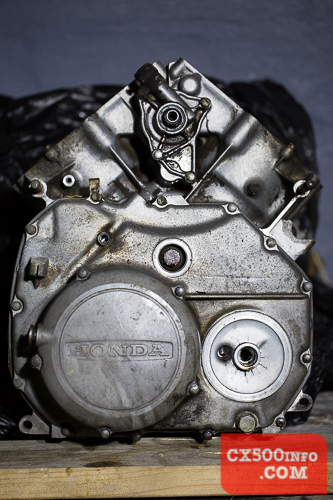
There are five bolts around the clutch cover:
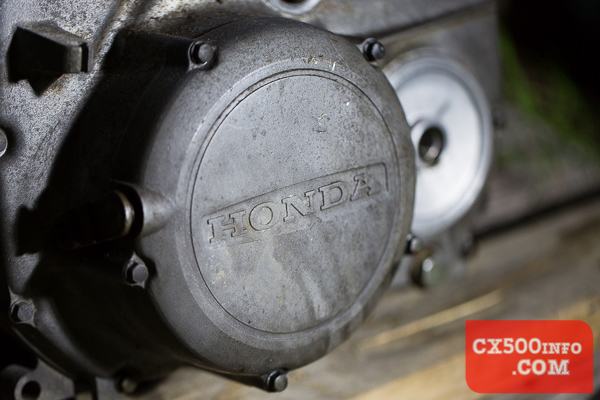
You will need to empty the engine of oil before doing this. It's also easiest if you disconnect the clutch cable before removing the cover.
*photo of removing the cable forthcoming*
A closeup of the cover bolts:
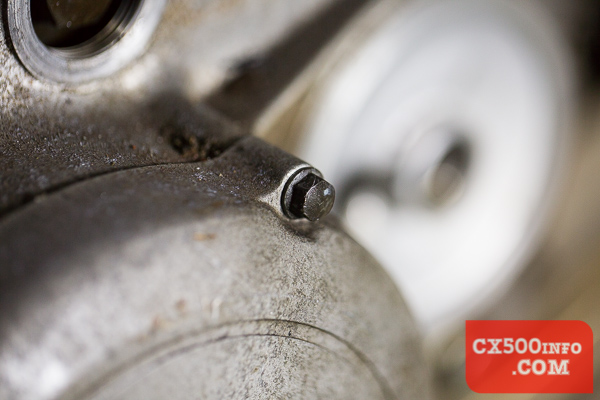
If your engine is as dirty as this one, clean off any grit and grime that you can above the clutch cover so that it doesn't fall into the engine as you are working:
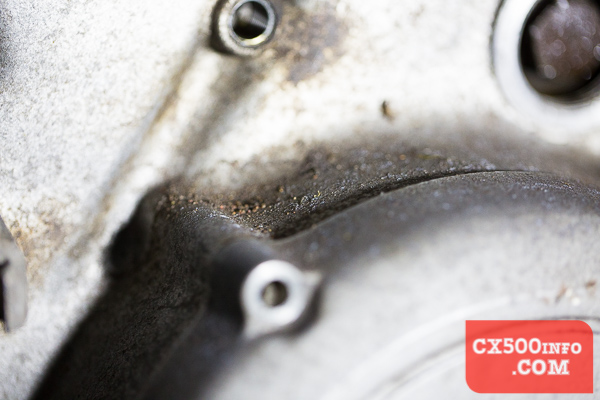
After you have removed the five bolts, the cover should come away fairly easily. If it doesn't, actuate the clutch arm (works even if you have removed the cable) and the cover should pop off. It's reasonably likely that the centre piece will fall out:
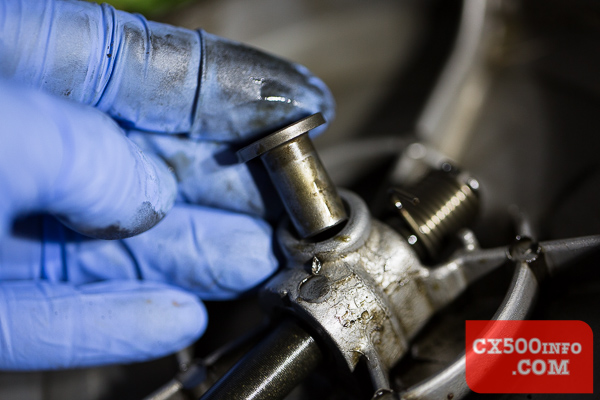
Make sure not to lose it. Now that the cover is off, we can see the front of the clutch assembly:
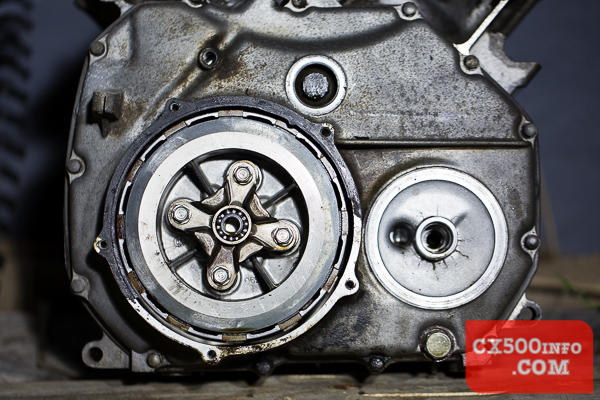
The plate with the bolts going through it holds pressure on the springs:
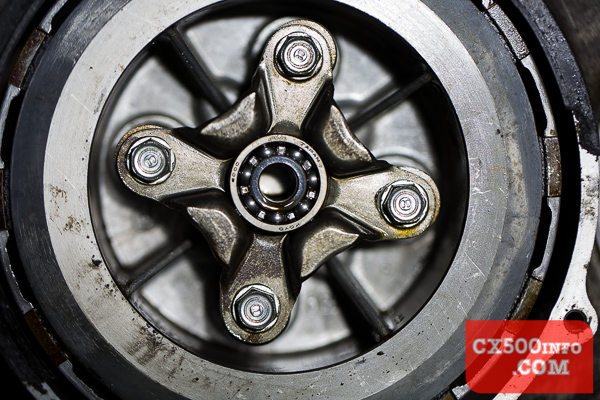
Using a 10mm socket, remove these bolts in stages. If you release one too much farther than the others - or remove them one at a time without loosening the others as you go - you run the risk of breaking the plate. Now you are left with a view of the centre clutch nut:
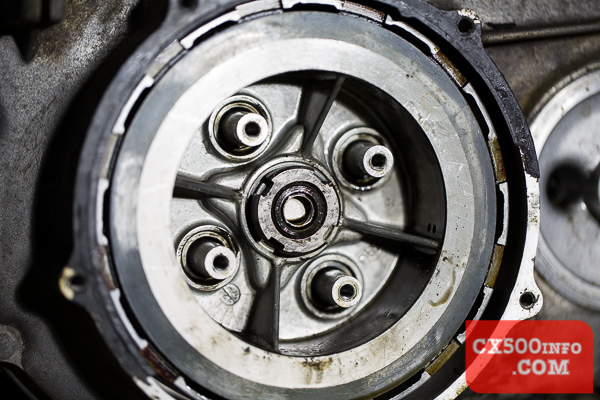
Note that at this point the front engine cover was removed to allow for better viewing. At this point we can't just undo the clutch nut, as you will get little resistance when attempting to turn it. To remedy this, we need to reinstall all four of the springs and bolts, this time with a washer between each. There is a risk of damage to the pressure plate if only two springs are used as shown - use all four:
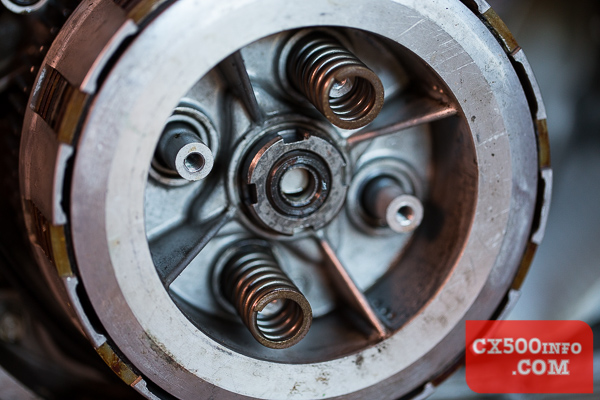
Now find some appropriately sized washers. Don't make them too big as you still need to fit a socket or other tool over the clutch nut to remove it.
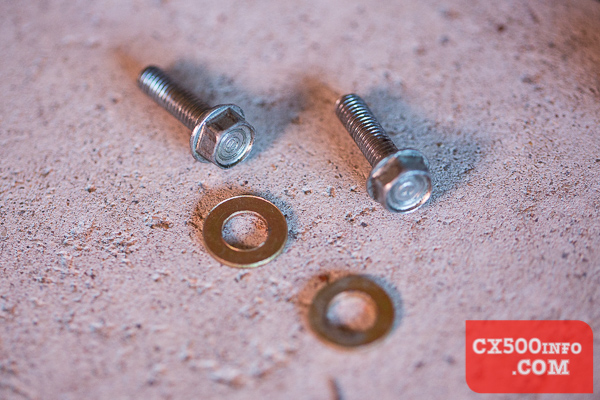
You should be able to easily screw the bolts in by hand to begin with;
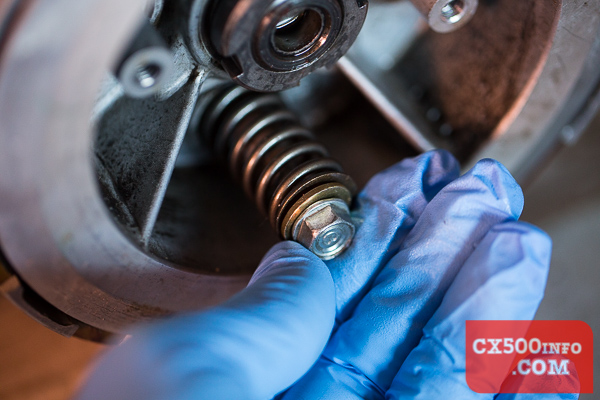
Once all four are hand-tight, tighten with a 10mm socket in stages:
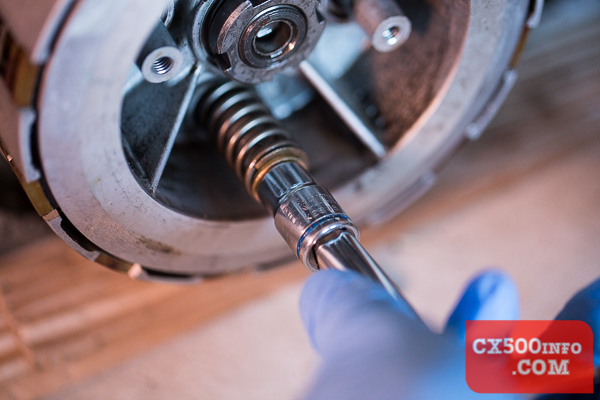
The bolts should bottom out around here - don't tighten them any further once you feel this:
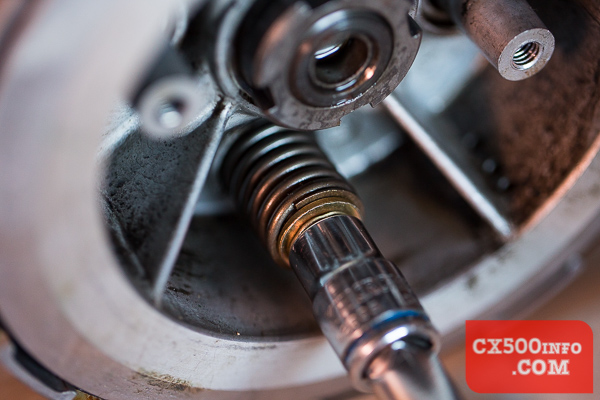
Stepping back:
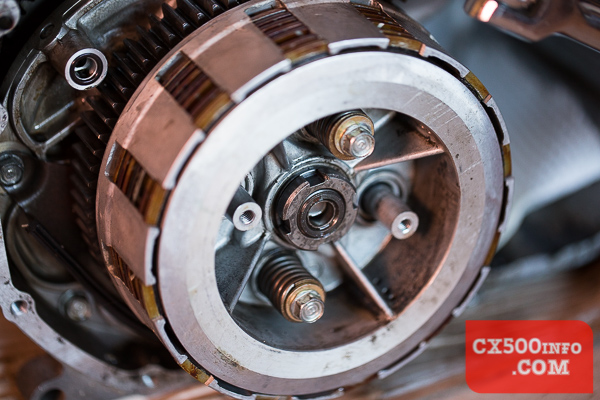
Now the clutch is engaged so you will get some purchase when trying to undo the nut. We're still left with the problem of the engine rotating as you try to undo the nut, however, but we can fix this by using the crankshaft bolt under the inspection hole at the front of the engine - if you have the front engine cover off you'll see it right above the clutch:
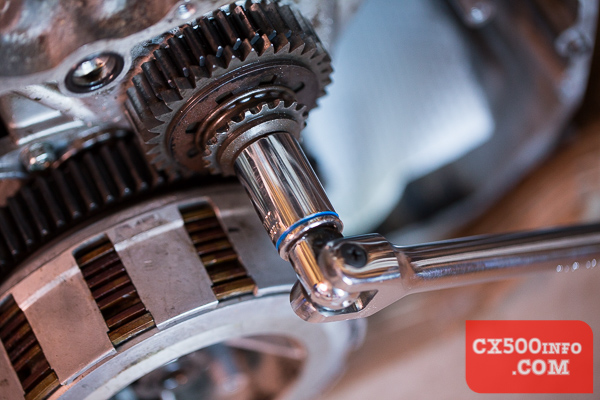
17mm socket + breaker bar wedged against the ground =
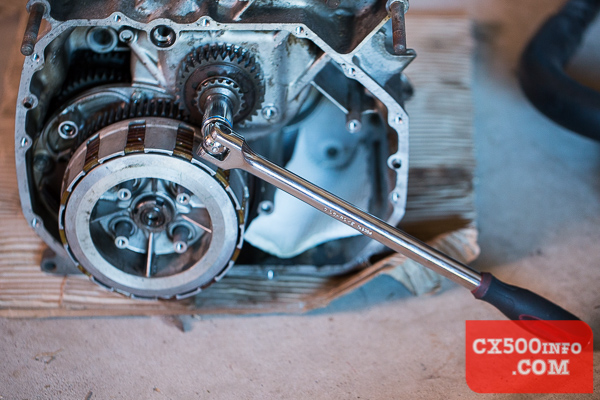
If you have an impact gun you can usually get away without having to lock the engine. If your engine is in your bike, you can either use the above method or you can put the bike in 5th gear and have someone step on the rear brake. If you're particularly nimble and the bike is on the side stand you may even be able to do it yourself, so long as you don't pull the bike over onto youreslf. Now take your tool of choice for removing the clutch nut - here we have gone with a King Gator socket (32mm, available on eBay):
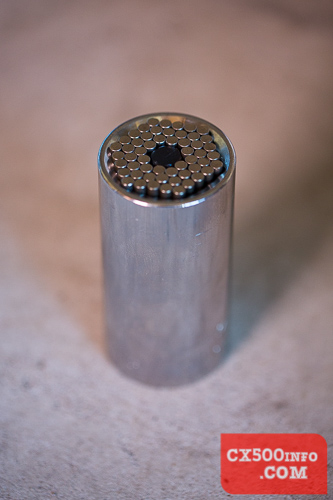
You can make your own out of a socket modified with an angle grinder. We recommend not to use the drift+hammer method as that will damage the nut on removal, and if you don't have a suitable socket what are you going to torque the nut up with later?
Gator socket on:
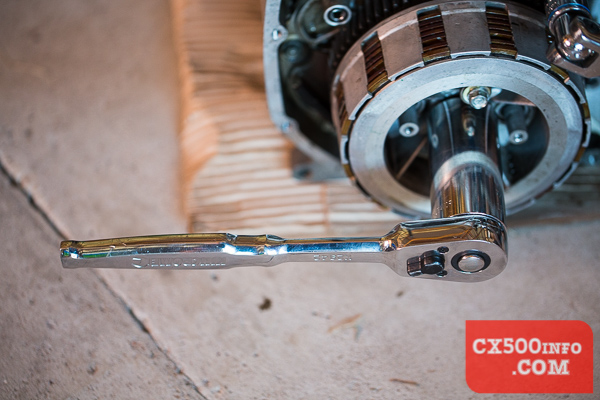
A wider view:
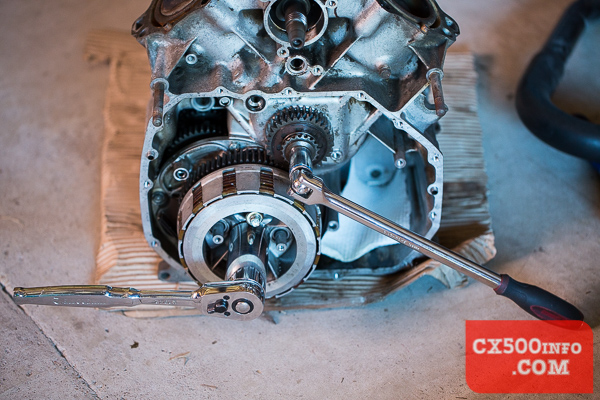
Now undo the nut - making sure not to knock the engine over if it's out of the bike. It should be on there fairly tightly. Once loose it should come away easily:
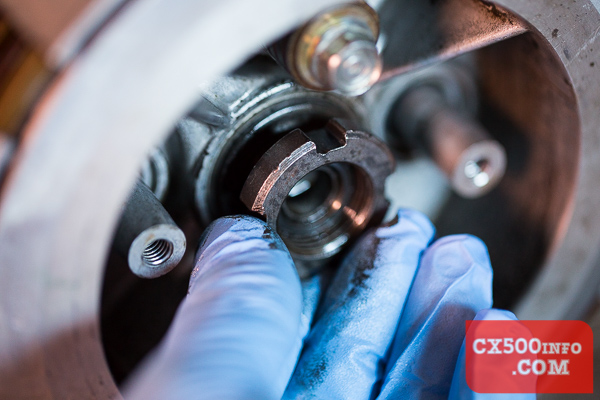
Closer:
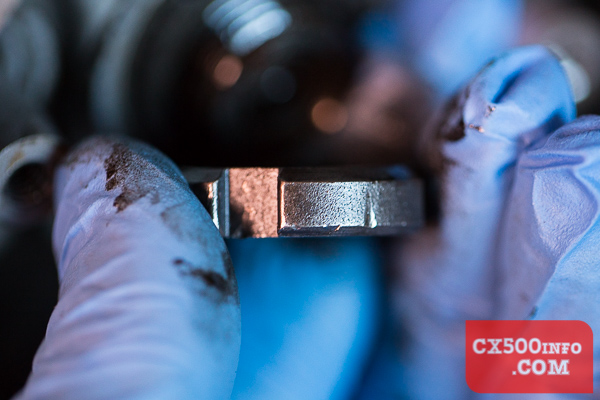
Look closely and you can see that the sides are different; in the above photo the top faces inwards when installed in the engine. Closeups of the inner face:
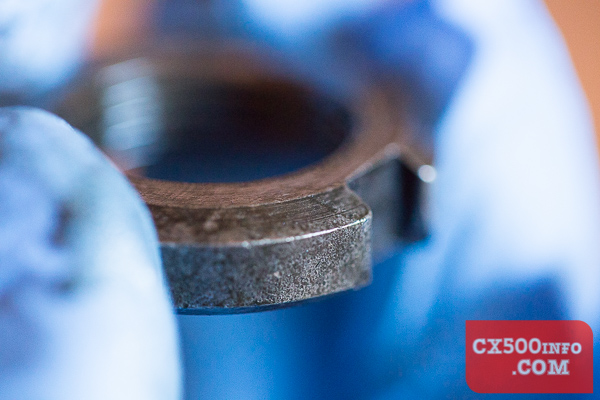
Outer face:
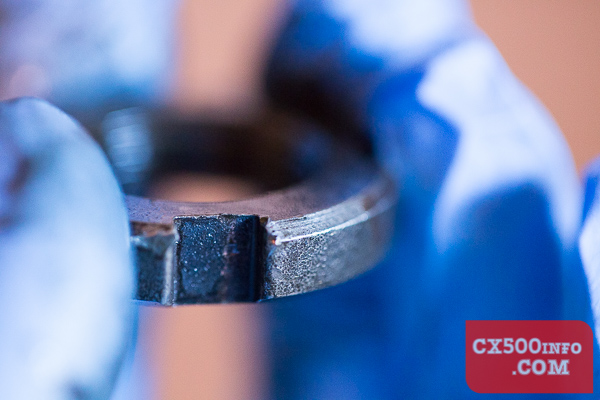
Behind the nut is a washer. This clutch is from a 1980 CX500 from Australia - other models may have different washer arrangements:
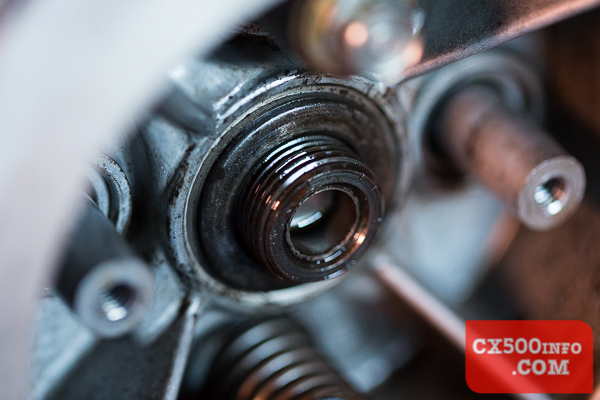
...which should pry free easily:
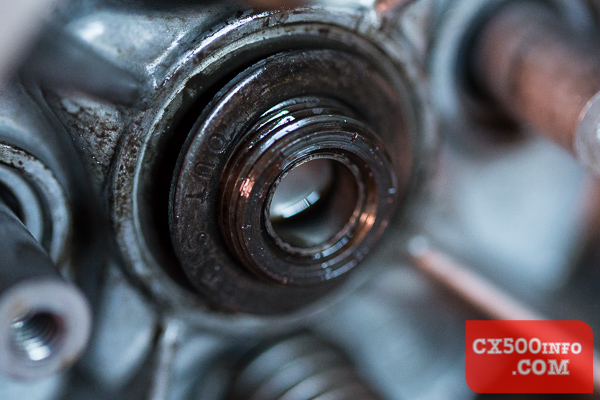
It's not hard to remember which way around this one goes:
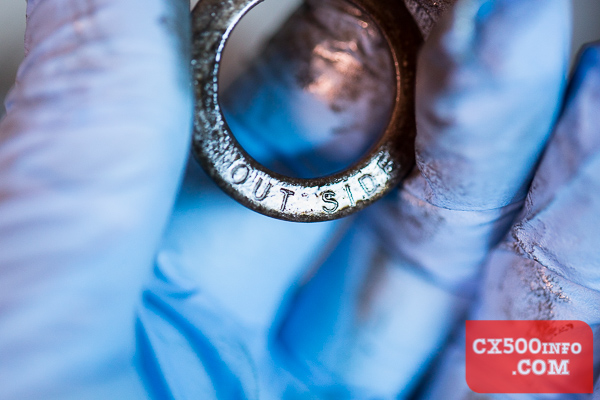
Quite clearly marked. Now we're left with a clutch looking like so:
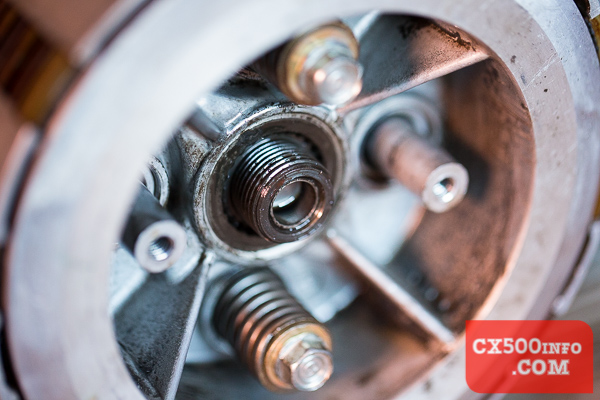
Remove the bolts holding the springs in in several stages:
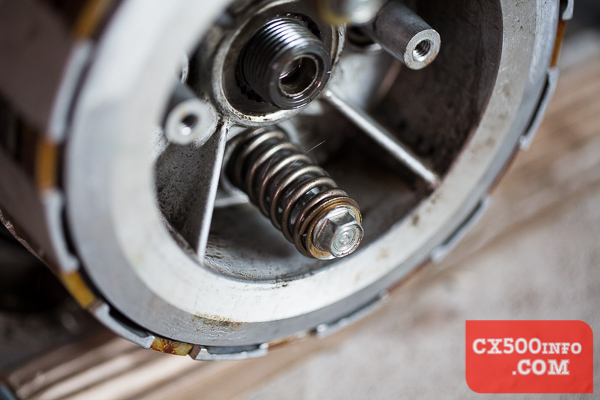
Remove bolts, washers and springs. Now we're left with nothing holding the clutch in:
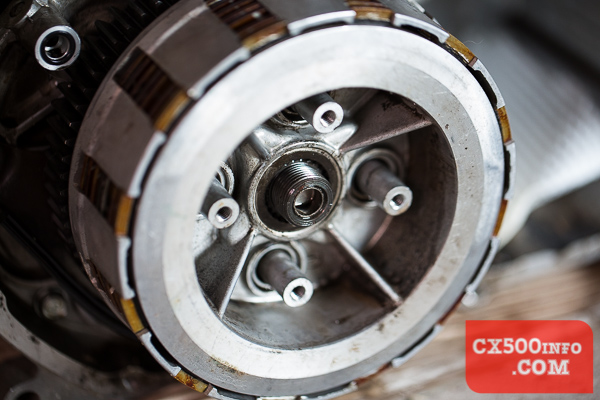
Take hold of one of the four posts and wiggle the assembly forward:
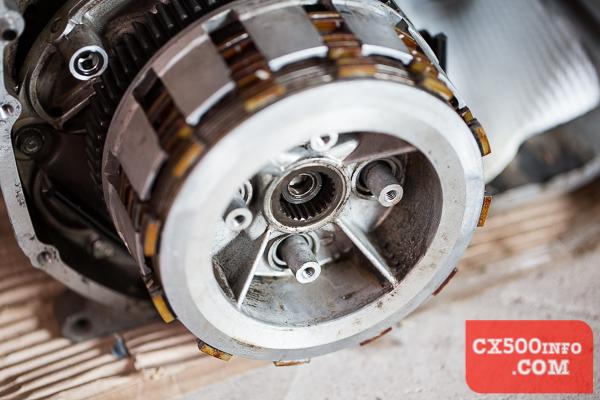
Put a hand underneath and pull it out the rest of the way:
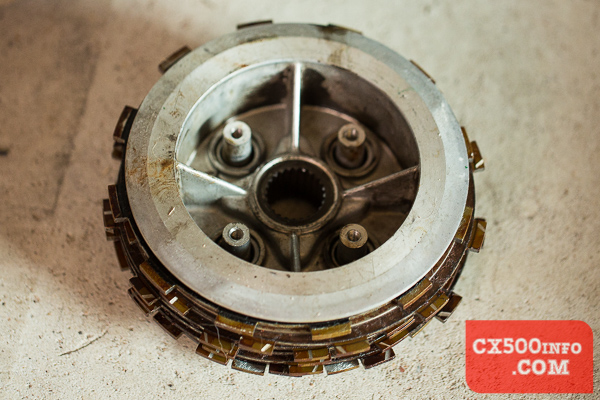
Take note of the order of plates before you remove any - in the below photo the top is the side which faces into the engine:
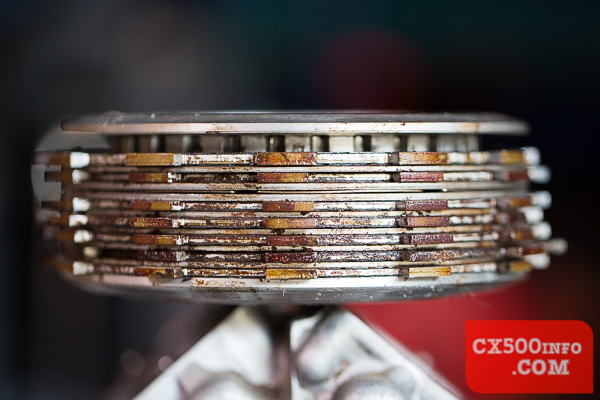
Now we're left with the clutch basket:
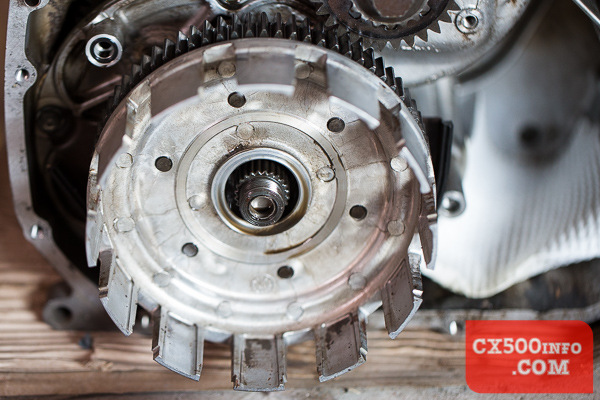
This should pull forward easily:
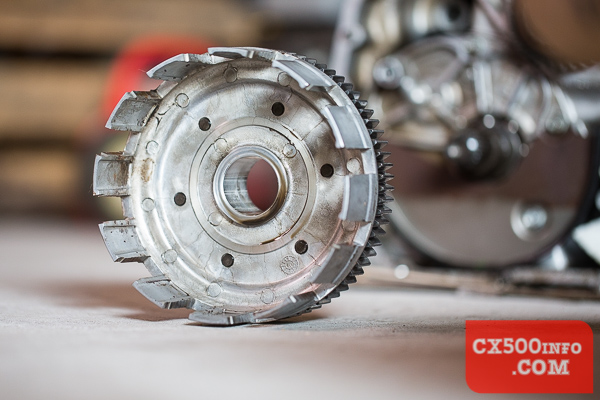
Another look at the basket:
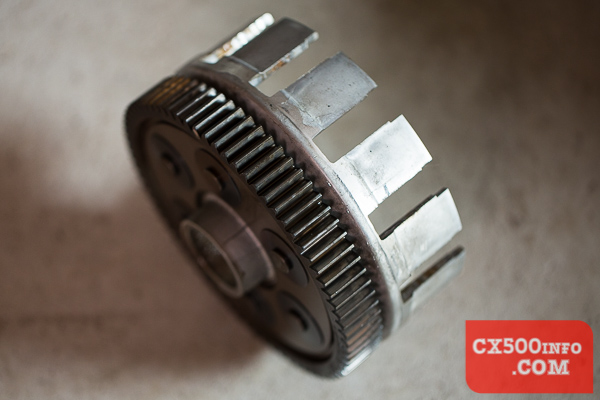
...and the reverse side:
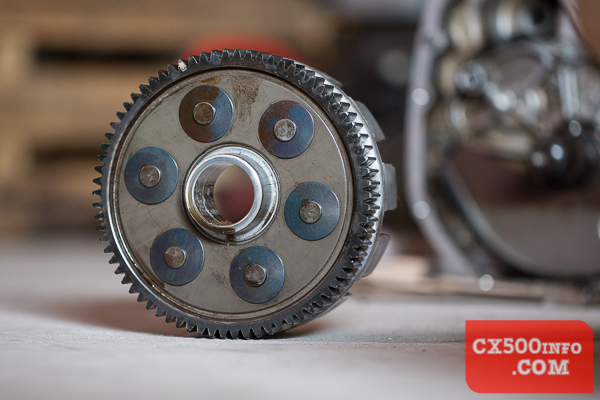
Closeup of the rivets:
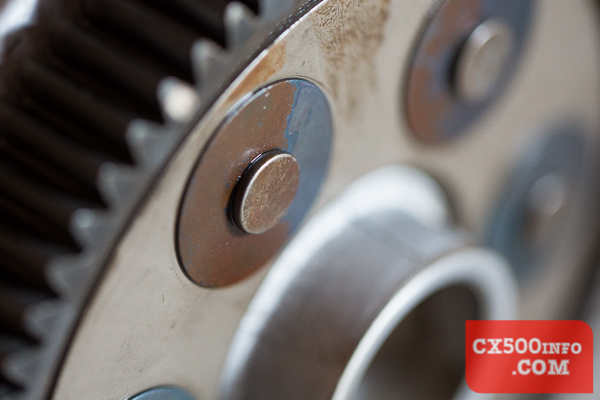
...and of some wear on the fingers:
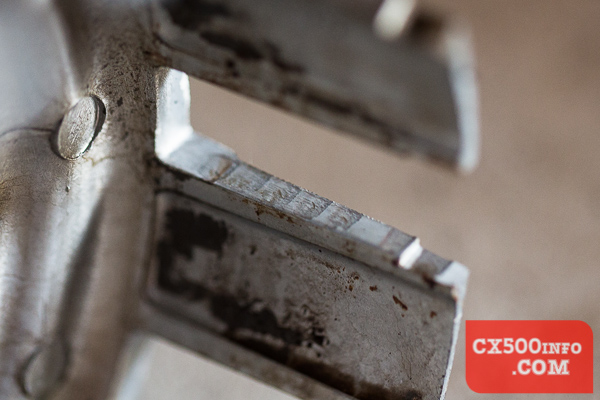
Now you should have a clutch-free engine!
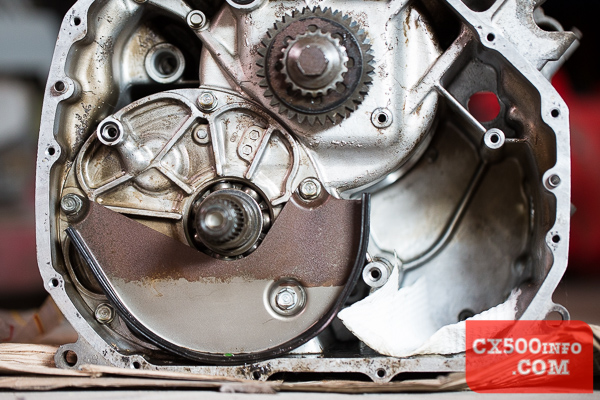
If you came here from the Triple or Quadruple Bypass page, click here to go back to the main page.
In 2019 the server has had to double in capacity to support the growing site... please consider dropping the site a donation to help cover the costs! Check out our Patreon for support options, buy a shirt, buy our apps, use my NordVPN affiliate link to sign up to their service or donate via Paypal:
| Paypal $5 link ->> | |
| Paypal $10 link ->> |